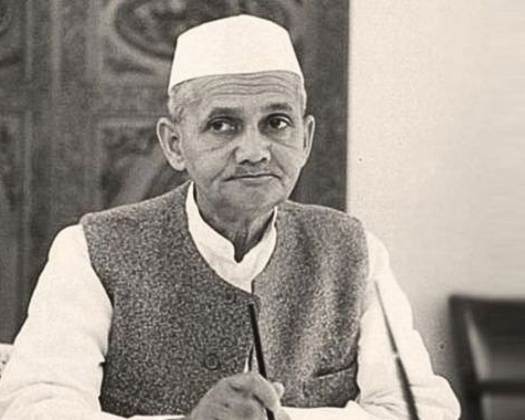Lal Bahadur Shastri: 10 Lesser-Known Facts About India’s Second Prime Minister
Lal Bahadur Shastri: 10 Lesser-Known Facts About India’s Second Prime Minister
Lal Bahadur Shastri, the unsung hero and the second Prime Minister of India, shares his birthdate with the revered Mahatma Gandhi. Born on October 2, 1904, in Mughalsarai, Uttar Pradesh, Shastri's contributions to India's growth remain etched in history. Beyond his notable slogan "Jai Jawan Jai Kisan," his life is adorned with fascinating anecdotes that illuminate his leadership and persona.
1. The 'Shastri' Title and Scholarly Success
Following Lal Bahadur Shastri's graduation from Kashi Vidyapeeth University in 1925, his scholarly excellence was recognized, earning him the title 'Shastri' as a mark of academic distinction.
2. The Ganges Crosser
In his school days, Shastri exhibited remarkable agility, crossing the Ganges river multiple times daily with a bag and cloth adorning his head, showcasing his determination and physical prowess.
3. Progressive Initiatives in Governance
As the Minister of Police and Transport Control in Uttar Pradesh, Shastri pioneered progressive measures. He opted for jets of water to disperse crowds instead of resorting to traditional lathi charges. Additionally, during his tenure as Transport Minister, he appointed women as conductors.
4. Contributions to Agricultural Revolution
Lal Bahadur Shastri championed agricultural reforms by endorsing the White Revolution, which aimed to enhance milk production through the support of the Amul milk co-operative in Anand, Gujarat. His efforts led to the establishment of the National Dairy Development Board in 1965.
5. Proponent of Green Revolution
He played a pivotal role in fostering the Green Revolution, a movement aimed at increasing food production and meeting the nation's demand for sustenance.
6. Anti-Corruption Measures
During his tenure as Home Minister, Shastri spearheaded the creation of the first committee to address corruption, emphasizing the importance of integrity and ethical governance.
7. Ethical Governance
Shastri's commitment to fairness and ethics was evident when he reversed an undue promotion awarded to his son, setting a precedent for ethical governance.
8. Leadership During Adversity
Following the 1965 war with Pakistan and a subsequent severe drought, Shastri urged the nation to fast for a day, invoking the iconic slogan 'Jai Jawan Jai Kisan' to boost morale and solidarity.
9. Personal Integrity
Lal Bahadur Shastri's integrity and commitment were reflected in his life even after his sudden demise. His widow, Lalita, repaid a car loan of Rs 5,000 that he had taken from Punjab National Bank using her pension.
10. Posthumous Recognition
In a testament to his legacy, Shastri became the first posthumous recipient of the Bharat Ratna, India's highest civilian honour.
Lal Bahadur Shastri's life and governance are marked by integrity, progressive initiatives, and an unwavering commitment to the nation's development, leaving an indelible mark on India's history.









